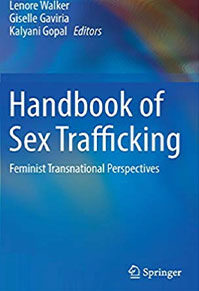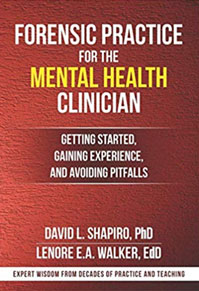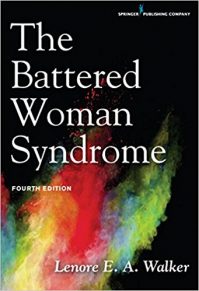Dr. Walker has launched her new publishing company, Endolor Publishing, LLC where it will feature the Dr. Ariel Lewis forensic psychologist murder mysteries as well as professional materials to assist mental health workers in assessment and treatment of battered women and other victims of gender violence.

Books
Dr. Lenore E. WalkerAvailable for purchase on Amazon
Madness to Murder
When feminist forensic psychologist, Dr. Ariel Lewis, agreed to help Earl’s lawyers understand why he brutally murdered his girlfriend, Carolina, she had no idea what would unravel from the mentally ill man’s unconscious mind. Just when Ariel thought that she’d saved him from death row, author Lenore Walker gives us another twist in this psychological thriller. Were there other women who Earl killed? Can she separate what’s in his delusional mind from the truth to force the criminal justice system to really work? And most importantly, why does Ariel, known for saving battered women from men like Earl, even care?
Introduction to Forensic Psychology: Clinical and Social Psychological Perspectives
This book provides a broad overview of the history and practice of forensic psychology, illustrating the principles of how psychological knowledge can inform judges and juries in the U.S. legal system with reference to several high publicity cases. The second edition contains new case law and discusses its implications in the major areas of forensics, examining new developments in juvenile justice, malpractice complaints, and reproductive rights, among other topics.
Handbook on Sex Trafficking
Feminist Transnational Perspectives
This definitive reference assembles the current knowledge base on the scope and phenomena of sex trafficking as well as best practices for treatment of its survivors. A global feminist framework reflects a profound understanding of the entrenched social inequities and ongoing world events that fuel trafficking, including in its lesser-known forms. Empirically sound insights shed salient light on who buyers and traffickers are, why some survivors become victimizers, and the experiences of victim subpopulations (men, boys, refugees, sexual minorities), as well as emerging trends in prevention and protection, resilience and rehabilitation. These powerful dispatches also challenge readers to consider complex questions found at the intersections of gender, race, socioeconomic status, and politics.
FORENSIC PRACTICE FOR THE MENTAL HEALTH CLINICIAN
Getting Started, Gaining Experience, and Avoiding Pitfalls
Mental health professionals have much to contribute to court-related decisions. Forensic work is interesting and rewarding, but it can also be challenging and stressful, even for experienced clinicians. “Forensic Practice for the Mental Health Clinician: Getting Started, Gaining Experience, and Avoiding Pitfalls” walks you through the steps required to navigate most aspects of forensic practice. Each chapter focuses on a different type of assessment and role, including pertinent background, case references, and elements that need to be addressed. Filled with practical information (and checklist summaries) to help keep you on track, Shapiro and Walker’s book provides the necessary tools to prepare you for the work ahead.
The Battered Woman Syndrome, Fourth Edition
With its focus on the connection between health and mental health symptoms, this seminal, groundbreaking work continues to forge new directions in the field of domestic violence. Describing a condition that is the basis for the battered woman defense–cited in cases of physically and psychologically abused women who have killed their abusers–it continues to be used as a defense to explain premeditated assault or murder. Completely updated, the fourth edition reflects the significant changes in the field since the book was last published, incorporating Affordable Care Act (ACA) guidelines on health care and domestic violence and data from the Adverse Childhood Experiences Study. It examines new research regarding battered women and cross-cultural and cross-national issues and includes several new chapters addressing issues ranging from murder–suicide in domestic violence cases to proposed legislation and congressional resolutions. The fourth edition provides new findings worldwide that reinforce the cycle theory of violence. It reflects new research on traumatic responses and addresses trauma-informed and trauma-specific psychotherapy, interventions with youth in juvenile detention centers, information from government task forces regarding children exposed to violence and juvenile justice, and new findings regarding the application of psychology to the legal system. Entirely new to the fourth edition is a section about reforming family court and divorce presumptions. This is crucial reading for nearly all health and mental health workers who may be called upon to ask clients about experiences of domestic violence and must respond knowledgeably and effectively.
The Battered Woman Syndrome, Third Edition (Focus on Women)
Walker’s seminal, groundbreaking book The Battered Woman Syndrome (BWS) has forged new directions in the field of domestic violence for over 30 years. Now, the highly anticipated, third edition offers thoroughly updated and revised research on key topics, including posttraumatic stress disorder, learned helplessness or learned optimism, the cycle theory of violence, and much more. This third edition presents updated data generated from the newly modified Battered Woman Syndrome Questionnaire (BWSQ). With a new focus on culture and ethnicity, these data detail the experiences of foreign women who either live in their country of origin or the U.S. Like its popular predecessors, this new edition serves as a valuable resource for both professional counselors and students studying domestic violence.
Battered Woman
“A major contribution to this subject. She is thorough, practical, compassionate, and authoritative. It is a reading must.”-Phyllis Chesler
Abused Women and Survivor Therapy: A Practical Guide for the Psychotherapist
This treatment manual is designed to guide both the newly-trained and the experienced psychotherapist in identifying, assessing and treating women who have been abused and who seek help in the healing process. Walker’s approach emphasizes the client’s own role in determining the course of therapy.
Terrifying Love: Why Battered Women Kill and How Society Responds
Walker’s chilling follow-up to her now-classic groundbreaker, The Battered Woman, is a dramatic study of women who murder their abusive partners in self-defense–and what happens to them afterward. “Provocative . . . the book makes its point.”–New York Times Book Review.
Introduction to Forensic Psychology: Clinical and Social Psychological Perspectives
This text provides a complete overview of the applications of psychology to the law. Incorporating the contributions of social and clinical psychology, this new text presents the material with an objective view towards the complete scope of the subject matter. In its clear coverage of the fundamentals of this field, it is an invaluable introduction for students, as well as a reference for practitioners.
First Responder’s Guide to Abnormal Psychology: Applications for Police, Firefighters and Rescue Personnel
This book gives readers critical insights into the human impact of extreme trauma, and the various levels of mental impairment suffered by both victims and survivors. Renowned trauma experts William Dorfman and Lenore Walker give this book immediate relevance through the use of real-life examples from a wide range of crisis situations. They have also deliberately minimized research citations within the text for greater readability.












